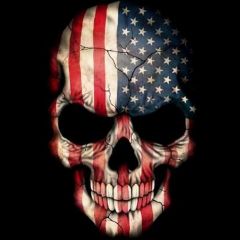Today, Sept. 21, 2012, is the the annual POW/MIA Day which honors and remembers those held as prisoners of war and those who didn't come home . It's a hugely important day (is hugely really a word?) It's one of six days that Congress has authorized flying the POW-MIA flag, and it's a day when all of us, both veteran and civilian, should pause to remember. Over the past few years, we have seen dozens of homecomings where happy families have welcomed their loved one back into the fold. We have seen tragic funerals where towns such as Pekin, Peoria, Creve Coeur, Princveile, Delevan and others have lined the streets to honor and remember those who have given their lives in defense of this great land. But POW-MIA remembers those who didn't come home, ever. There are thousands of people still missing from our many wars. Fortunately, science has progressed to where that number is shrinking as DNA tests and forensics allow for better testing of remains. Ceremonies acros the nation are being held today as well as overseas at our varoius bases, FOBs and COPs. So what is POW-MIA Day and how did it get started? Here's something from the Military Times's Web site which wrote a little sidebar to a story that has some background on the holiday. The paper also has a very touching story on their Web site which is linked to above. The National POW/MIA Recognition Day, established by Congress in 1979, takes place annually in the United States on the third Friday in September. The day of observance honors prisoners of war and members of the military missing in action. Defense Department statistics list a total of 83,417 GIs missing in action: 73,681 from World War II, 7,947 from the Korean War, 126 from Cold War actions, 1,657 from the Vietnam War and six from the war with Iraq and related conflicts. The National POW/MIA Recognition Day is not a federal public holiday, but it is one of six days when the POW/MIA flag can be flown at military bases and federal buildings. (Newt Heisley, a World War II veteran and commercial artist, designed the flag for a New Jersey firm. The black-and-white banner shows the phrase, ?you are not forgotten,? as well as the head-bowed profile of his son, Jeffrey, a former Marine.) The other five days the POW/MIA flag can be flown at armed forces bases and government buildings are: Armed Forces Day, Memorial Day, Flag Day, Independence Day and Veterans Day. So take some time and remember. There's nothing worse, I would imagine, than not knowing what happened to a loved one who went off to war and didn't come home. And also remember those who suffered at the hands of the enemy as POWs .From the Illinois National Guard: The original focus of the project was Company B, 192nd Tank Battalion, Illinois Army National Guard whose Soldiers, along with those of the rest of the battalion, would successfully repel the Japanese invasion of the Philippine?s Bataan Peninsula for four months while critically short on food, bullets and other supplies. Without supplies or hope of reinforcements, the troops were ordered to surrender. Now prisoners of war, the Soldiers were made to walk the 80 miles to Camp O?Donnell suffering from dehydration, exhaustion, disease and brutal treatment at the hands of their Japanese guards. Courtesy of pjstar.com








